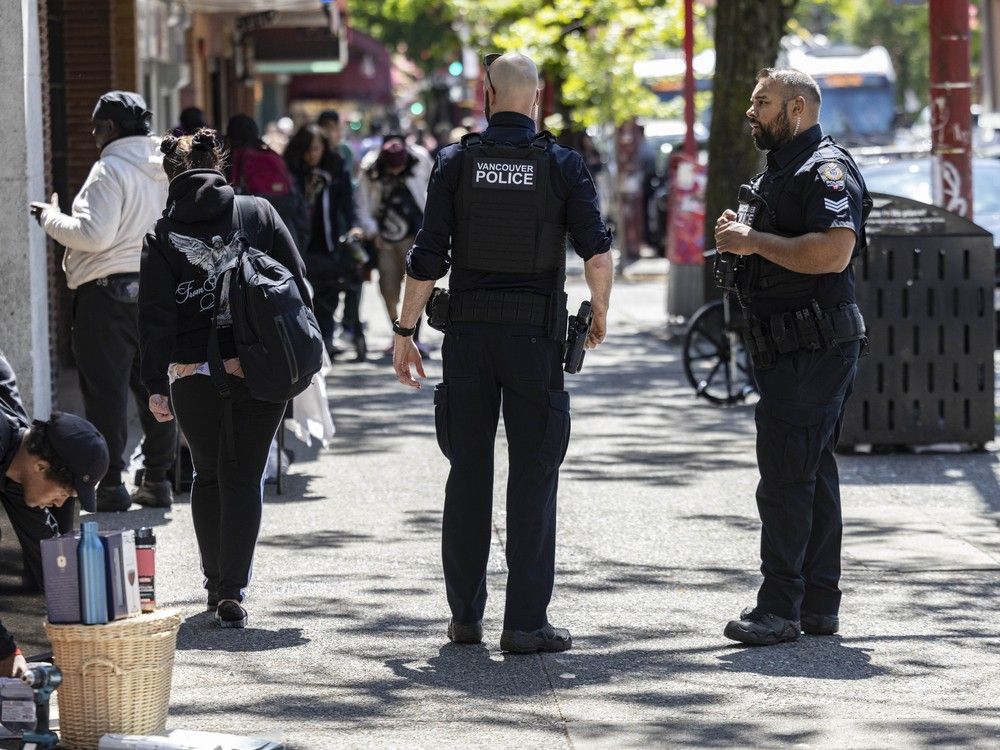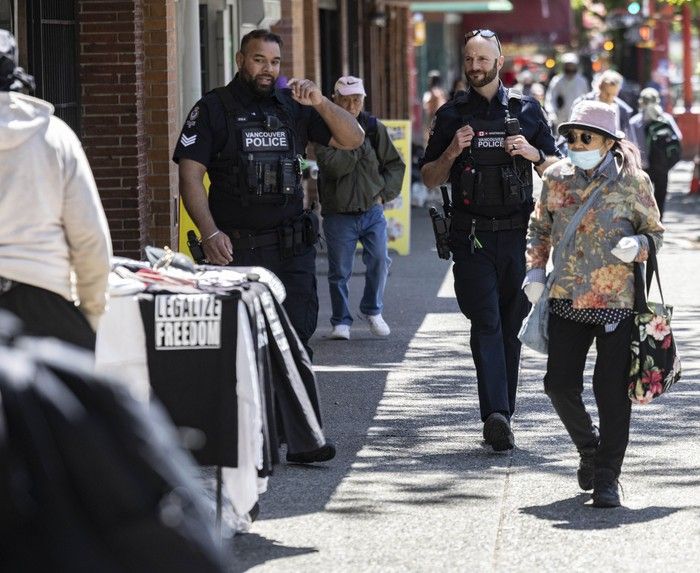
A new Vancouver police board report rebuts claims there are arrest quotas in the Downtown Eastside, noting officers on Task Force Barrage are guided only by performance measures, not enforced targets, after a whistleblower sparked a month-long investigation.
The complaint, filed anonymously with the Office of the Police Complaint Commissioner on March 8, alleged that officers were being pushed to meet daily arrest quotas as part of the controversial drug enforcement initiative in the Downtown Eastside.
A key piece of evidence cited by the whistleblower was an email from a staff sergeant on the Vancouver police beat enforcement team sent to sergeants and acting sergeants. The email, which outlined operational strategies for covert drug enforcement, stated: “Ideally, we’d like 2-3 drug arrests and charges a day.”
“I write as a VPD officer who is disgusted by the politically motivated crackdown that has been launched by the VPD. It is sad that I can’t raise my concerns inside of the VPD,” reads the complaint.
Launched in mid-February, Task Force Barrage is a Vancouver Police Department program aimed at reducing violent crime in the Downtown Eastside. Backed by $5 million from city hall, the project has increased police presence in the neighbourhood by deploying extra officers and using overtime shifts to patrol the area more intensively.

At a Vancouver police board meeting Thursday, Assistant Supt. Matthew Harty, who conducted an internal investigation into the complaint, described the task force’s performance measures as being more like “aspirational goals.”
“VPD does set performance measures, and there’s a distinct difference between the two,” said Harty. “Quotas are rigid and have formal or informal employer rewards and punishments attached, potentially leading to significant ethical issues and possible police deviance.”
However, not everyone is convinced by the VPD’s explanation.
“Performance measures and quotas are essentially the same thing in policing,” said Kash Heed, a former Vancouver police superintendent and a former B.C. solicitor general and a current City of Richmond councillor.
Last month, Vancouver police released statistics suggesting Task Force Barrage has successfully reduced violence and property crime in targeted neighbourhoods during its first three months compared to the same period in 2024.
Heed acknowledged these gains but emphasized the need for a wider focus on performance measures.
He said a stronger focus on reducing violence related to drug trafficking and gang activity, particularly violence impacting vulnerable residents, is critical to meeting the task force’s stated goals.
“They can’t solve the problems in the Downtown Eastside by making arrests alone.”
In a letter to the police board dated June 3, University of B.C. law professor Benjamin Perrin called the quota allegations “serious” and warned they raise red flags about policing in one of Canada’s most vulnerable communities.
Perrin pointed to the potential harm against Indigenous residents, who make up more than 30 per cent of the Downtown Eastside population, arguing that quota-driven policing risks deepening systemic discrimination already entrenched in Canada’s justice system.
“Simply put, the police investigating themselves is insufficient,” wrote Perrin, who is urging the board to launch an independent and transparent inquiry into Task Force Barrage.
Such a review, Perrin said, must include whistleblower-protected testimony, input from Indigenous leaders and a broader look at how the operation is affecting public access to services and overall community well-being.